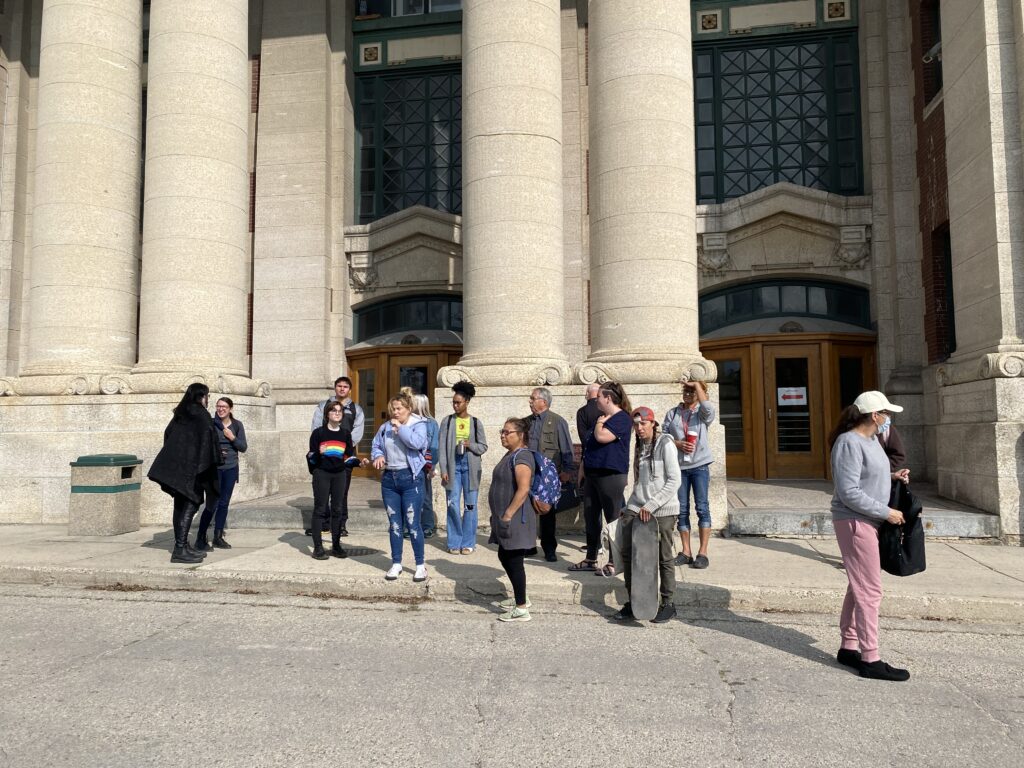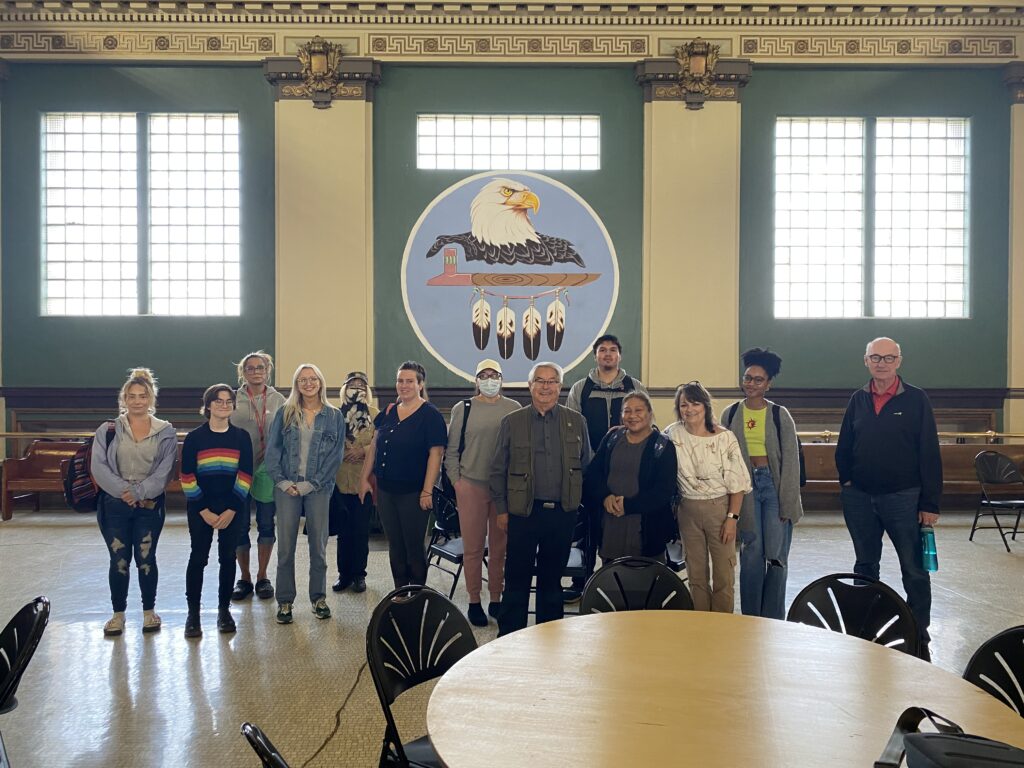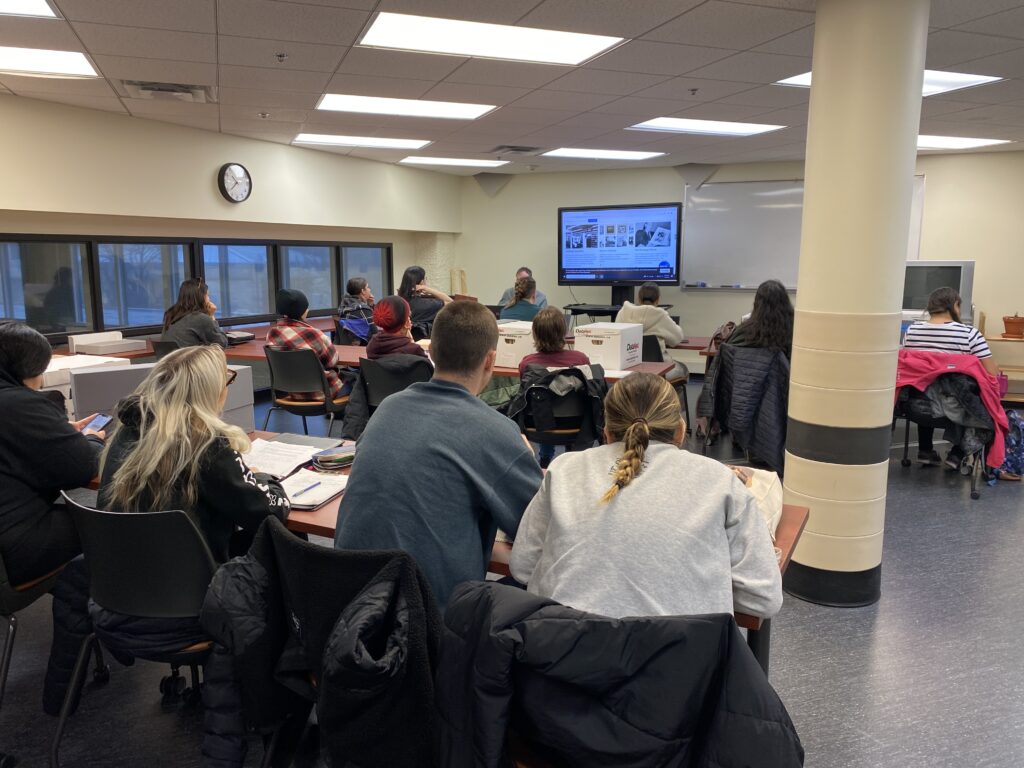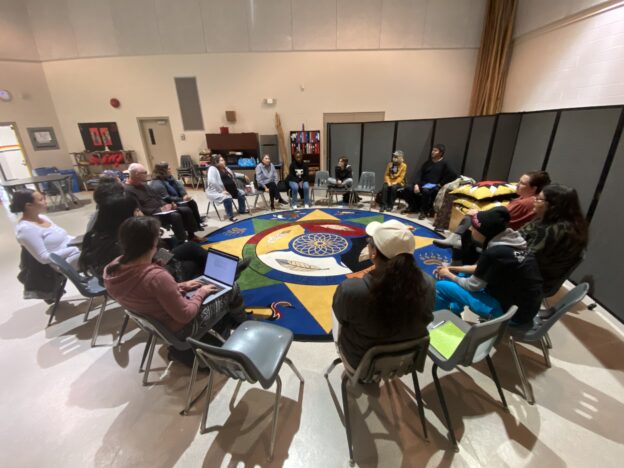Those are the words of a student who participated in Indigenous Resistance and Development in Winnipeg, a course offered for the first time in the University of Winnipeg, Department of Urban and Inner-city studies.
In a previous post I wrote about the recent publication of the book Indigenous Resistance and Development in Winnipeg: 1960-2000. It was published in the spring of 2023, just in time for a new course to be offered in the Department of Urban and Inner-City Studies beginning in the fall of 2023. As noted in that post, the idea for the book came several years earlier. While teaching at the University of Winnipeg Selkirk Ave. campus at Merchants Corner, I learned that Students had little knowledge about the Indigenous leaders who fought hard to challenge colonial systems and establish Indigenous led organizations in Winnipeg. I reached out to Kathy Mallett for her help, and with financial support from the Manitoba Research Alliance I was able to hire Kathy to help develop a course about this important history.
But when looking for resources, Kathy hit a wall. She was able to find a bit of the history of various organizations in different publications here and there, but documentation was sparse, and none of what she found reflected the voices of the Indigenous people who were involved.
That’s where the idea of the book was born. There were many challenges along the way, but thanks to a number of committed authors, we were able to power through to see the project to completion.
The initial idea was that Kathy and I would teach the course together. Kathy brings experiential knowledge as one of the Indigenous activists involved in many of the initiatives students would learn about. My contribution is as a critical, non-Indigenous inter-disciplinary urban scholar teaching in Winnipeg’s North End. But by the time were ready to offer the course, Kathy was well into retirement and busy with other projects. She decided she would prefer to visit the class from time to time rather than commit to regular teaching. With her encouragement and guidance, I proceeded to develop the course. I aimed to develop a course that would students into the community while also bringing Indigenous activists to the classroom.


Throughout the term we heard directly from Indigenous leaders who were involved in the development of Indigenous organizations. For example, Kathy Mallett and Josie Hill shared stories about the development of Ma Mawi Wi Chi Itata Centre. Josie HIll and Annetta Armstrong spoke to us about the evolution of the Native Women’s Transition Centre – now the Indigenous Women’s Healing Centre. We visited Children of the Earth School and learned about the history of Neeginan Centre, at the Centre from Bill Shead, one of its founders. Students were fascinated with the video recorded interview with George Munroe, who shared his memories as a past Executive Director of the Indian and Metis Friendship Centre. Near the end of the term we met at the University of Manitoba Archives, where Archivist Brian Hubner explained to students how to access a collection of materials gathered years earlier through Manitoba Research Alliance, Preserving the History of Aboriginal Institutional Development in Winnipeg project. Students learned about the importance of the Aboriginal Justice Inquiry and the Implementation Commission from one of its Commissioners, Wendy Whitecloud. Throughout the term, students learned that Indigenous women played a central role in the resistance to colonial policies and systemic racism and the development of Indigenous led institutions.

The feedback i received from students was positive. Students shared that they were surprised by how little they knew about the history of Indigenous activism in Winnipeg. One Indigenous student, who grew up in the inner-city and who knew of the organizations we discussed in the class, said that she did not know about how they came to be. She said that learning about this history was empowering “…if activists could change policies back then, so can we…This makes me feel proud to be Indigenous.” Students said that they appreciated hearing directly from the people involved in the work, and in particular noted that “the women were inspiring”. Students noted that learning about the Aboriginal Justice Inquiry was illuminating, and relevant in light of current challenges.
As is typical when teaching a course for the first time, I learned a few things too. I’m looking forward to making some changes next year while also ensuring that the course is centred around the voices of Indigenous people involved in this important part of our history.


